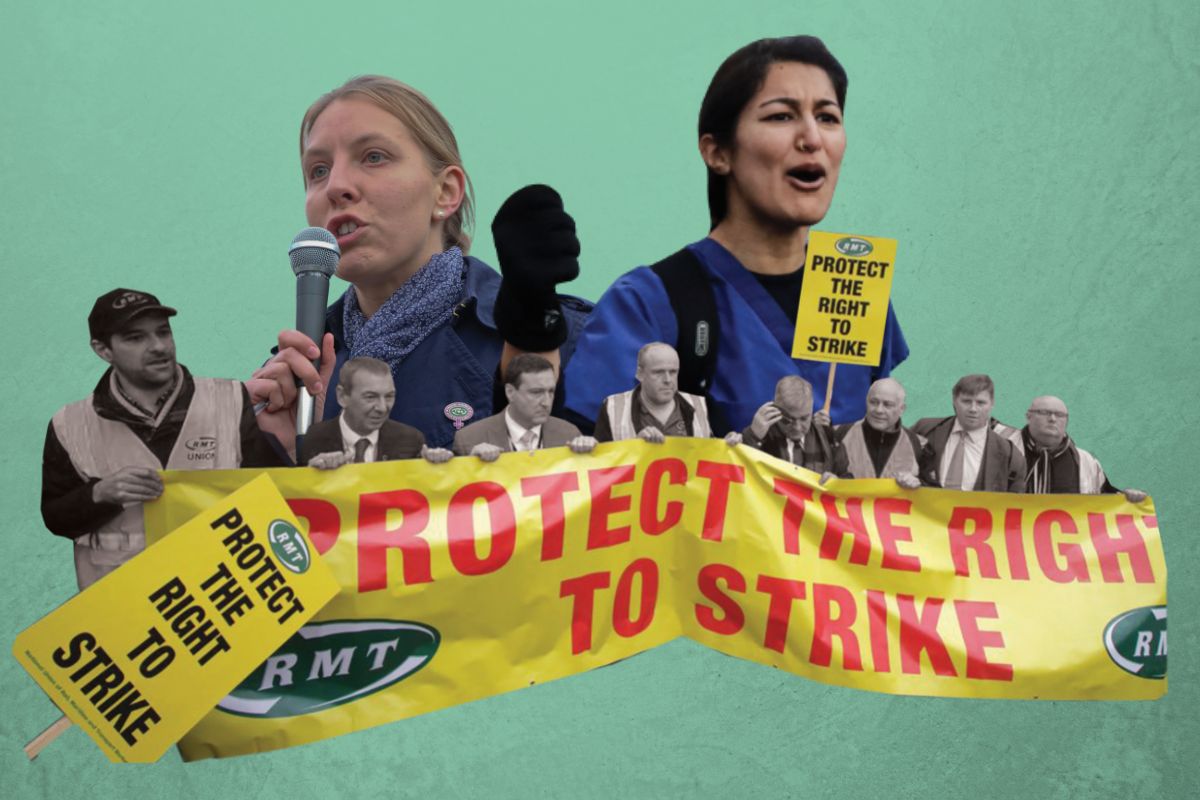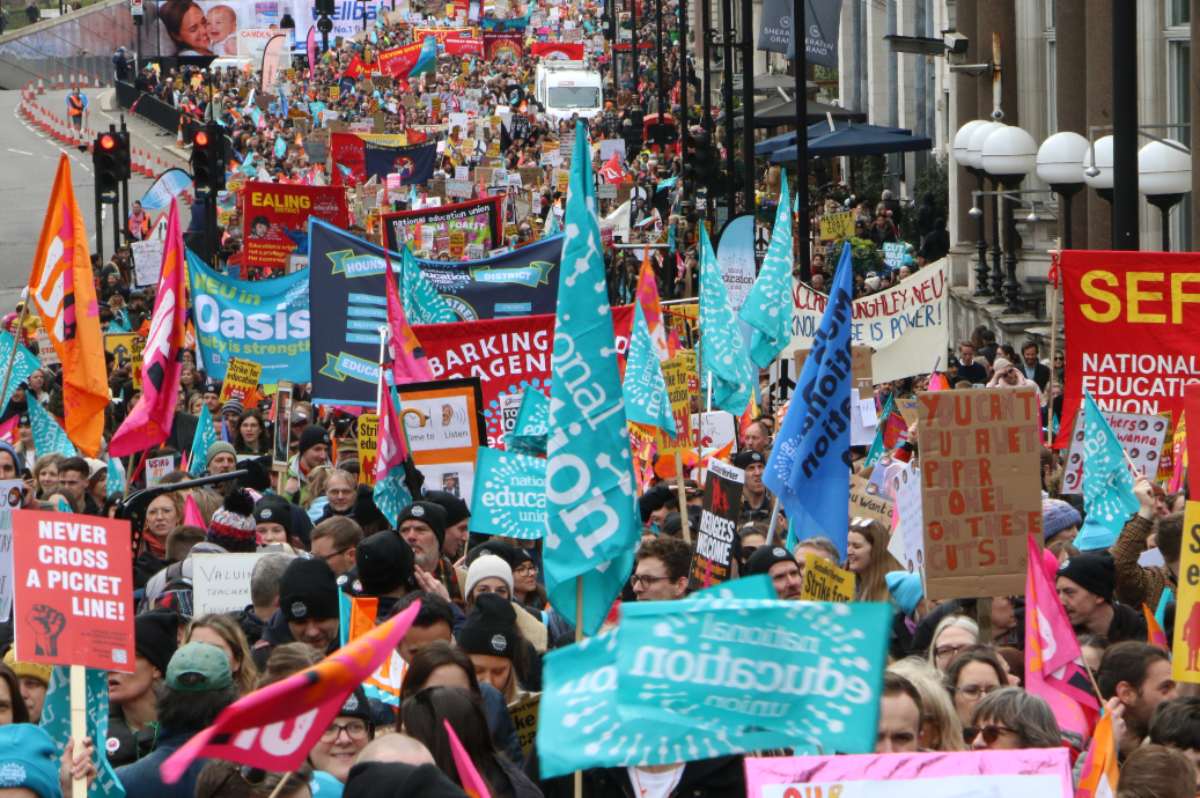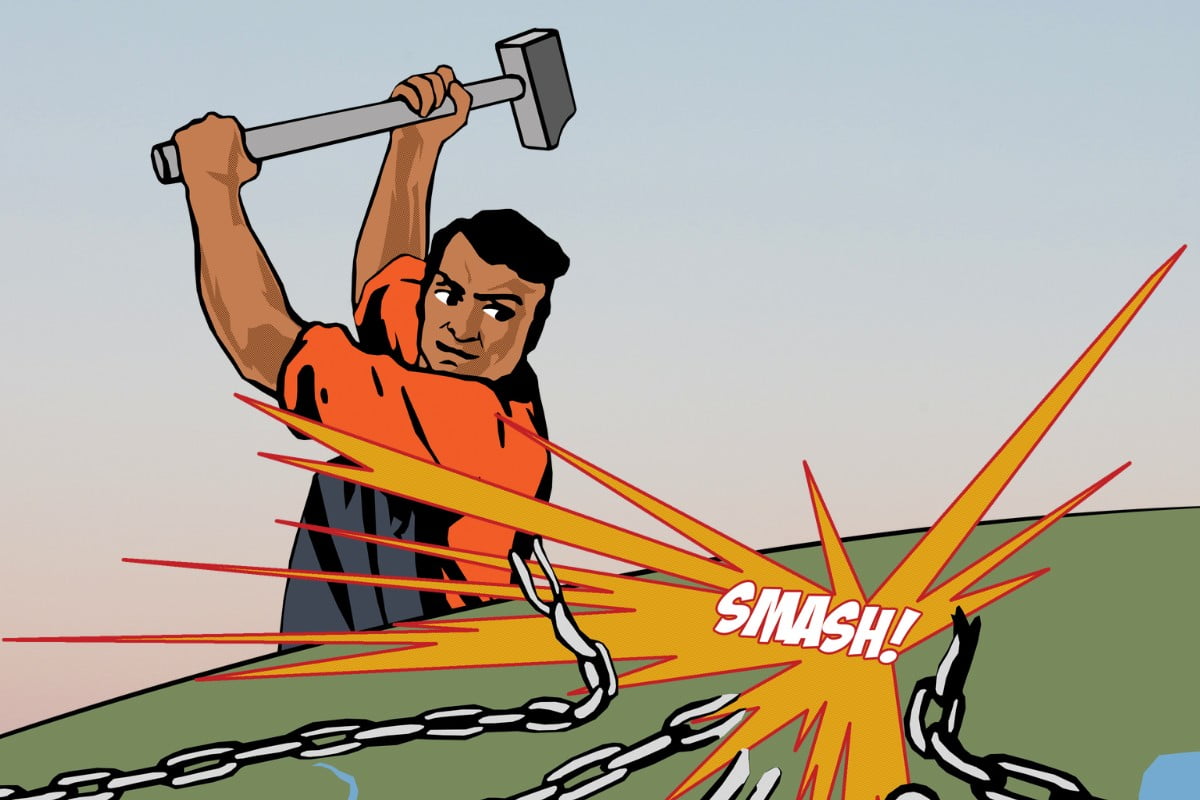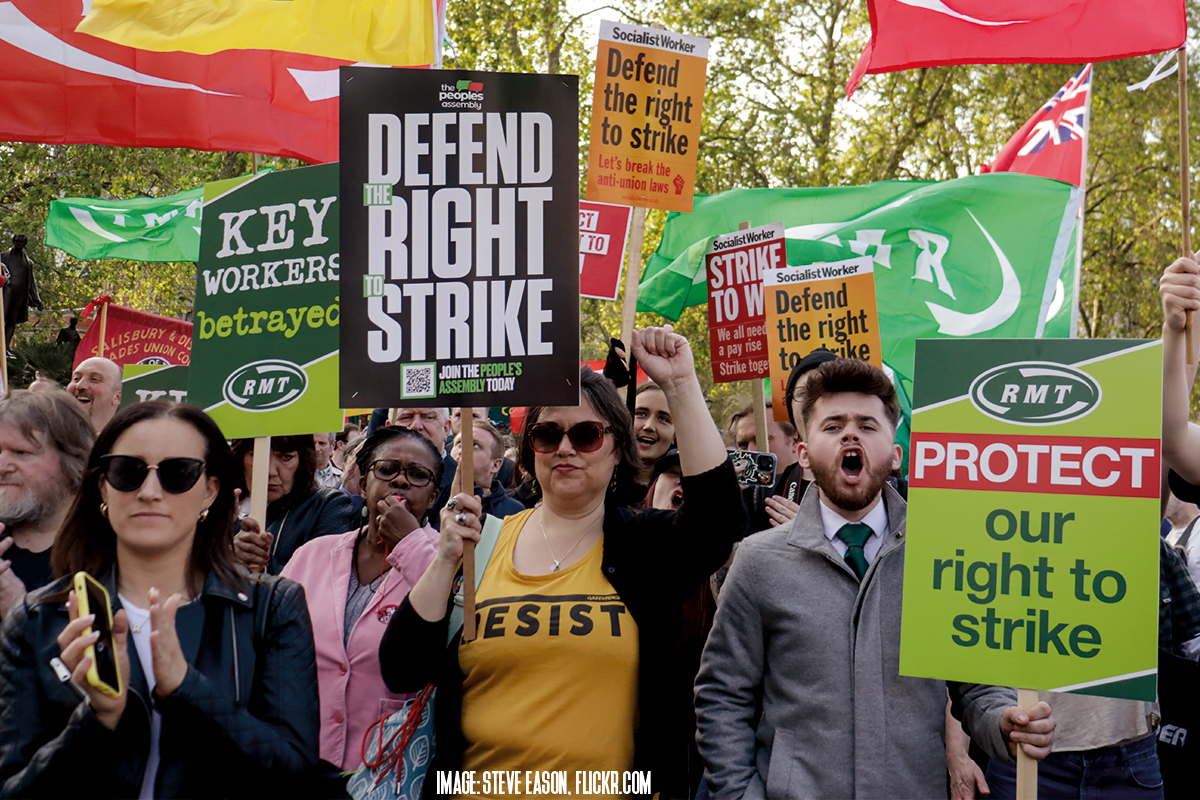Saturday 9 December saw the first emergency congress of the TUC since 1982. Called to plan the trade unions’ response to the Tories’ Strike (Minimum Service Levels) Act, the gathering brought together union leaders and delegations from across the labour movement.
There was one item on the agenda: a motion put forward by the TUC general council, outlining how the movement should stand up to this new anti-union legislation, and what the next steps are for resisting it.
The Minimum Service Levels (MSL) law is a huge threat to the trade unions’ industrial strength, effectively outlawing the right to strike in certain sectors. This emergency congress was a chance to outline a plan of escalatory action to smash this, and other anti-union laws, once and for all.
In effect, however, little new was said by most union leaders. In fact, Saturday’s meeting appears to have been an opportunity for various general secretaries to repeat what has already been said on other occasions, such as at the TUC congress held earlier this year.
Resistance
 The motion passed by the TUC special congress committed affiliated unions to never ask their members to cross a picket line, and to continue resisting the MSL law in the courts.
The motion passed by the TUC special congress committed affiliated unions to never ask their members to cross a picket line, and to continue resisting the MSL law in the courts.
It also stated that the unions will “hold Labour to their commitment to repeal this legislation within their first 100 days of office”, and that the TUC will organise a national demonstration in the event that a work notice is issued and a union/worker is subsequently sanctioned.
All of this essentially reiterates points previously made in the composite motion passed at the most recent TUC congress in September.
Despite this, there was some limited discussion of potential tactics and methods of resistance. UCU general secretary Jo Grady, for example, raised the need for the TUC to build up a war chest, in case financial support is needed by any unions whose funds become sequestered.
The Royal College of Midwives raised the issue of whether the MSL act affected equalities legislation. Other legal questions, such as how it may affect GDPR laws, or whether it could be ignored on health grounds, were also raised by different delegations.
Frankly, however, this is farcical. The labour movement faces an existential threat. In this context, it is a grave error for trade union leaders to rely upon the capitalist courts or laws, or to look for ‘one neat trick’ to save their bacon.
Unfortunately, there was little discussion of what is actually required to defeat the bosses’ laws: the mass mobilisation of the working class. This is despite the special congress acknowledging, in the abstract, that this is definitely necessary.
TUC general secretary Paul Nowak suggested that the finer details of how to fight back could not be discussed at this union gathering, since the government would be listening.
This is a poor excuse. It denies the trade unions the opportunity to democratically discuss defiant strategies for the movement to adopt, and clear, bold action to be taken. A mass, working-class fightback cannot be built from the top, nor behind closed doors.
Cheltenham
 One concrete outcome, however, were plans for a national demonstration against the MSL law, to be held on 27 January 2024 in the big, industrial town of…Cheltenham.
One concrete outcome, however, were plans for a national demonstration against the MSL law, to be held on 27 January 2024 in the big, industrial town of…Cheltenham.
This location was not chosen so that marchers can head to the races afterwards.
January marks the 40th anniversary since unionised GCHQ workers, based in Cheltenham, were targeted by Thatcher’s Tory government. 7,000 of these workers were told to either leave their union or face the sack. 14 employees refused, and were subsequently dismissed.
A campaign was launched in response, involving strikes, demos, and solidarity from the wider movement. But it never really reached its full potential. Indeed, the TUC’s response was meek, even promising Thatcher a ‘no disruption’ deal at GCHQ itself.
In the following years, marches were held annually, every January, in the Gloucestershire town. It was left to the 1997 Labour government to finally repeal the GCHQ unionisation ban – forcing workers to wait 13 years for justice.
What’s more, this attack on the Cheltenham workers was just one part of a wider assault on union rights by Thatcher’s government, most of which saw limited resistance from the ‘new realist’ union leaders of the day.
Indeed, even the new TUC president and FBU leader Matt Wrack acknowledged this in his speech on Saturday, warning against “passivity” and “meek compliance”.
Wrack also acknowledged the failure of the 1982 special congress to properly resist the attacks that came in its wake, urging the TUC not to repeat the same mistake.
Wrack sets out the risks of the union response to the MSL legislation – of “passivity and meek compliance” with the legislation, as well as “overpromising” when the union movement did not defeat Thatcher’s attacks after the last special congress in 1982
— Polly Smythe (@pollysmythe) December 9, 2023
Prepare
It is fitting that the TUC wants to use this January’s demo as an opportunity to link this battle from the past – a major attack on trade union rights – to today’s struggle.
Then, as now, it appears that the TUC may only be willing to mount limited, symbolic resistance, instead placing all its bets on the hope of an incoming right-wing Labour government reversing the Tories’ anti-worker laws.
This approach, sadly, carries the stench of passivity.
For one, it may be over a year until any new government replaces the Tories. And for another, despite what Starmer’s Labour says about repealing the MSL law (as well as other anti-union legislation, such as the 2016 Trade Union Act), the unions cannot take ‘Sir’ Keir’s words as binding.
He has gone back on more than a few pledges in his time as Labour leader. This includes a broken promise on workers’ rights earlier this year, which led to a minor fray between Starmer and affiliated unions.
Act fast
 Despite the bolder, more urgent words of some union leaders, the trade union movement as a whole risks sleepwalking into further shackles. And MSLs represent the heaviest shackle yet.
Despite the bolder, more urgent words of some union leaders, the trade union movement as a whole risks sleepwalking into further shackles. And MSLs represent the heaviest shackle yet.
The announcement of a national demonstration is welcome. But we – the communists – believe that much more is required. All forms of action should be on the table, including industrial action.
Indeed, if a back-to-work notice is issued, solidarity strike action must be prepared for across the movement, and even escalated to a one-day general strike if required. Now is not the time for timidity or hollow words.
The Tory government is on the ropes, while Starmer’s Labour cannot be trusted. The TUC leaders have not heeded the lessons of history. Rank-and-file trade unionists cannot afford to make the same mistake.
Above all, we must look to the militant examples of the past for inspiration, such as the Pentonville Five in 1972. Then, it was not the union leaders, but a mass movement of rank-and-file workers who launched a wave of illegal strike action to defeat the Tories’ anti-union attacks.
Today, the working class must do the same: not only to smash this latest anti-union law, and knock this bosses’ government out of power, but to put our class in control.






